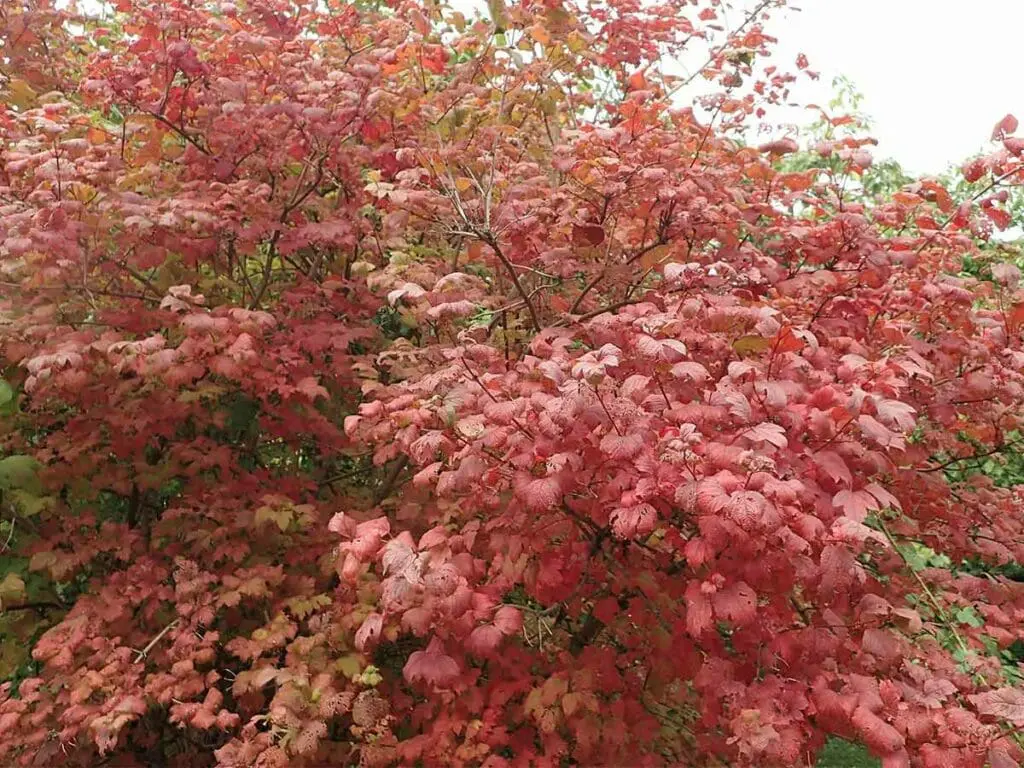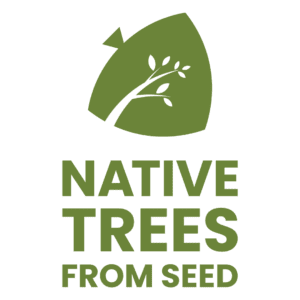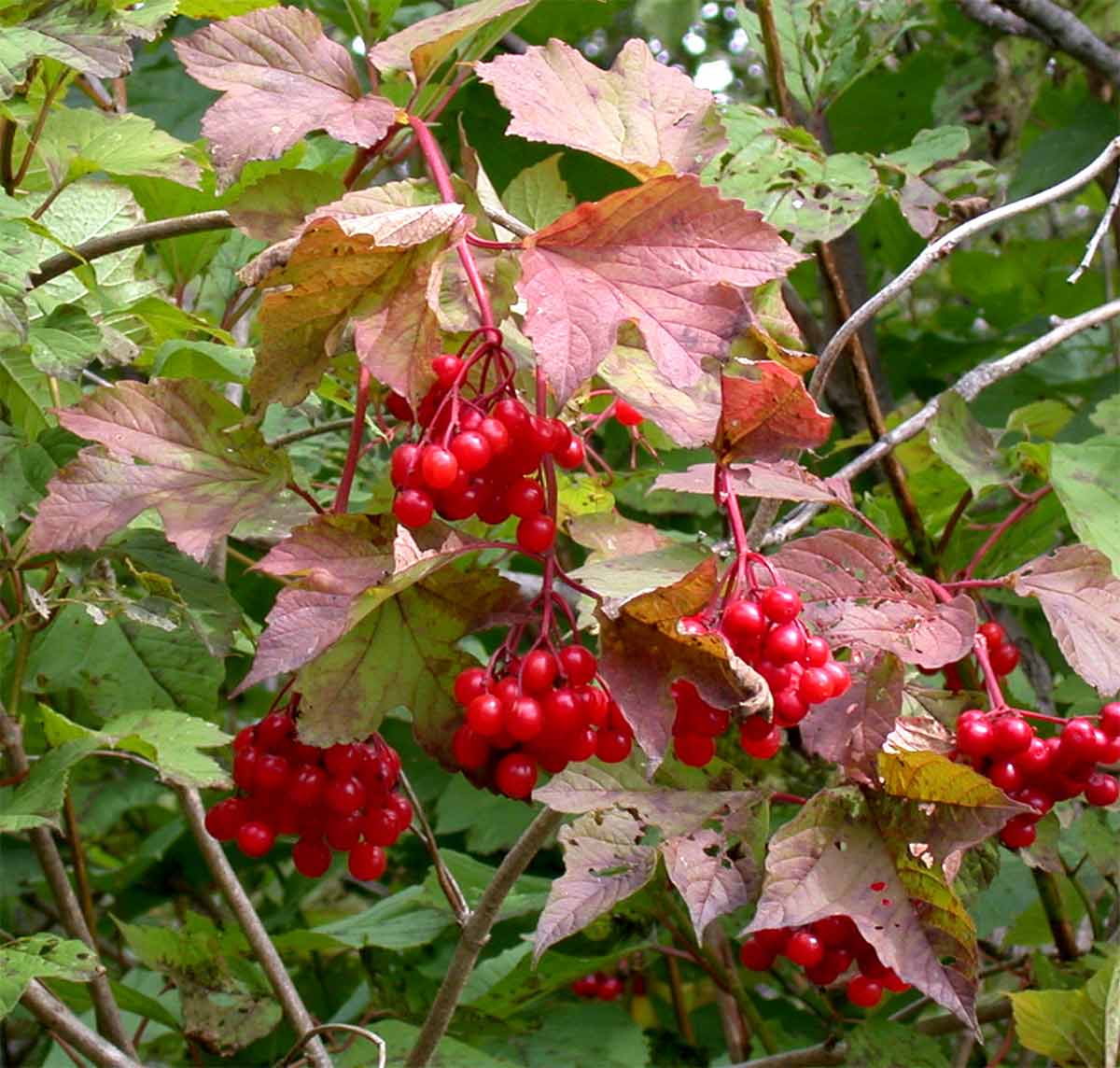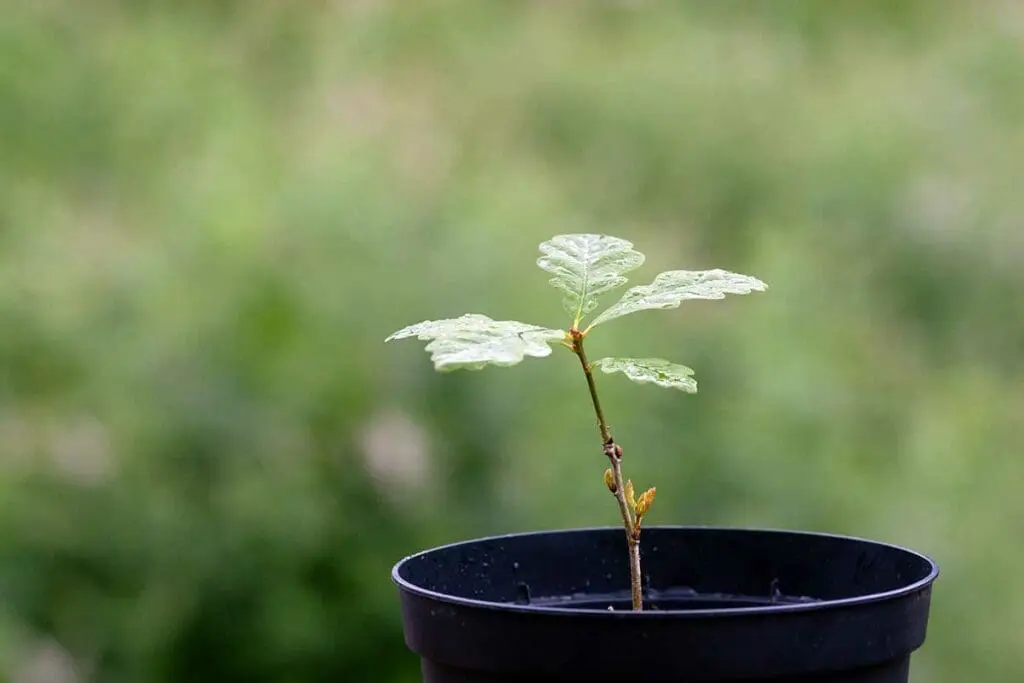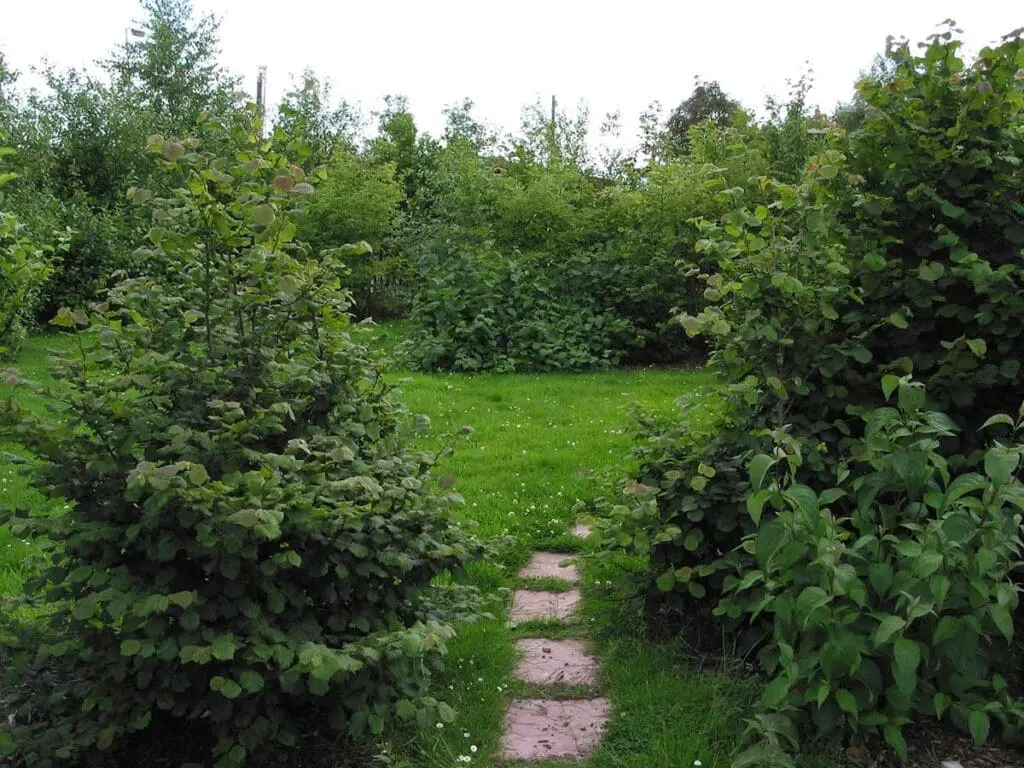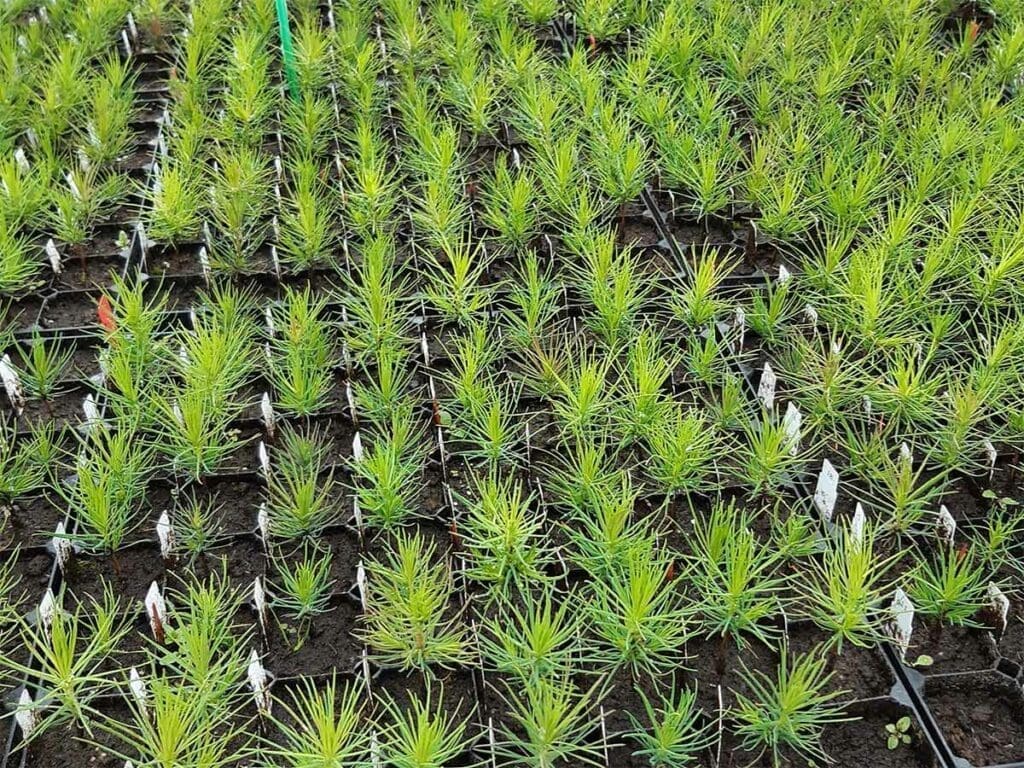- Common name: Guelder Rose
- Scientific name: Viburnum opulus
- Family: Moschatel (Adoxaceae)
- How to grow Guelder Rose
Guelder rose belongs to the same family as the elder. In the past, it was known as swamp-elder which demonstrates its preference for boggy areas.
Many parts of the plant are inedible or poisonous, especially the leaves and the bark.
Another name for guelder rose is crampbark, which refers to its use in medicine for treating asthma and heart disease – but don’t try it yourself!
Berries are edible when cooked or made into wine, producing a pleasant acid taste.
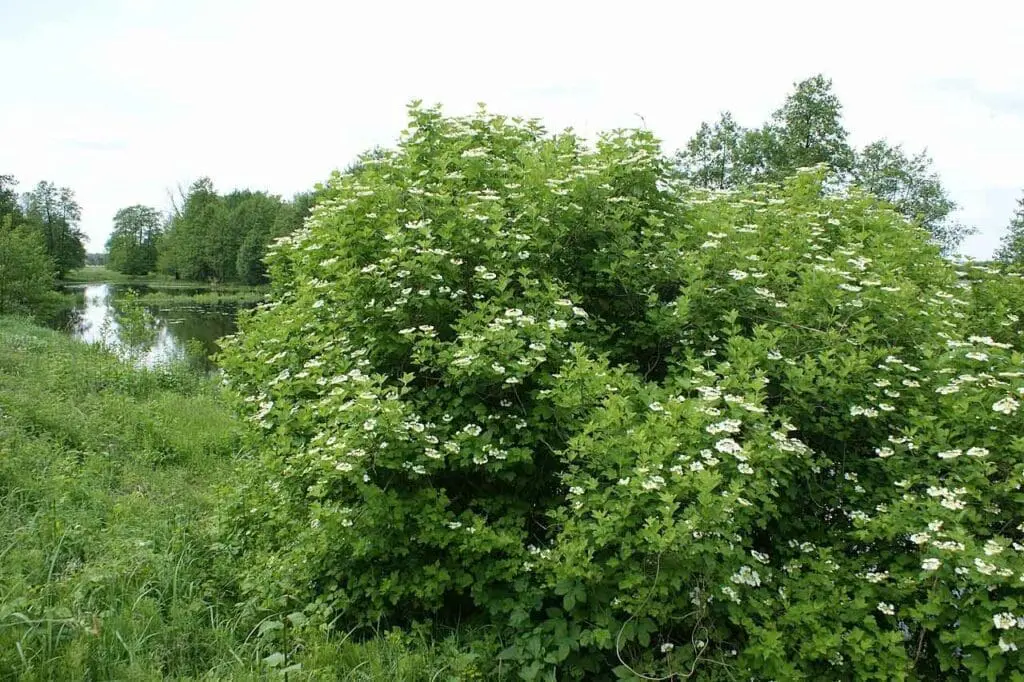
Leaves
New shoots appear in May. Each leaf has 3-5 lobes. On the top they are smooth and hairy below, similar in appearance to the field maple leaf.
The edges of the leaves are toothed. In the autumn, the leaves take on a beautiful wine-red colour.
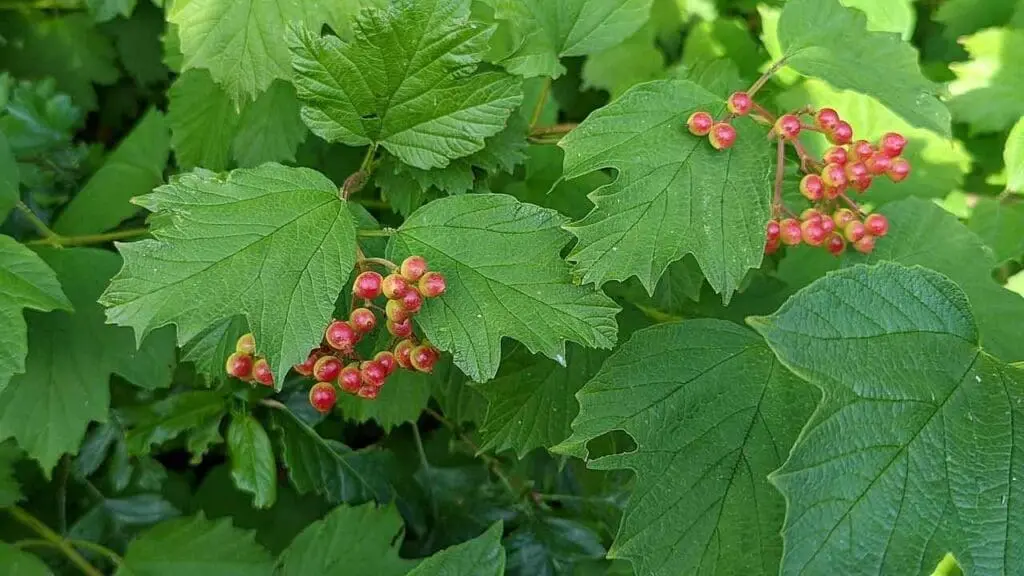
Flowers
The flowers are white and appear in May and June.
The whole flower is a flat head of many flowers. Each single flower stands on a little stem.
The single flowers around the outside are bigger than the inside flowers. The bigger flowers are sterile and help to attract insects to pollinate the smaller ones.
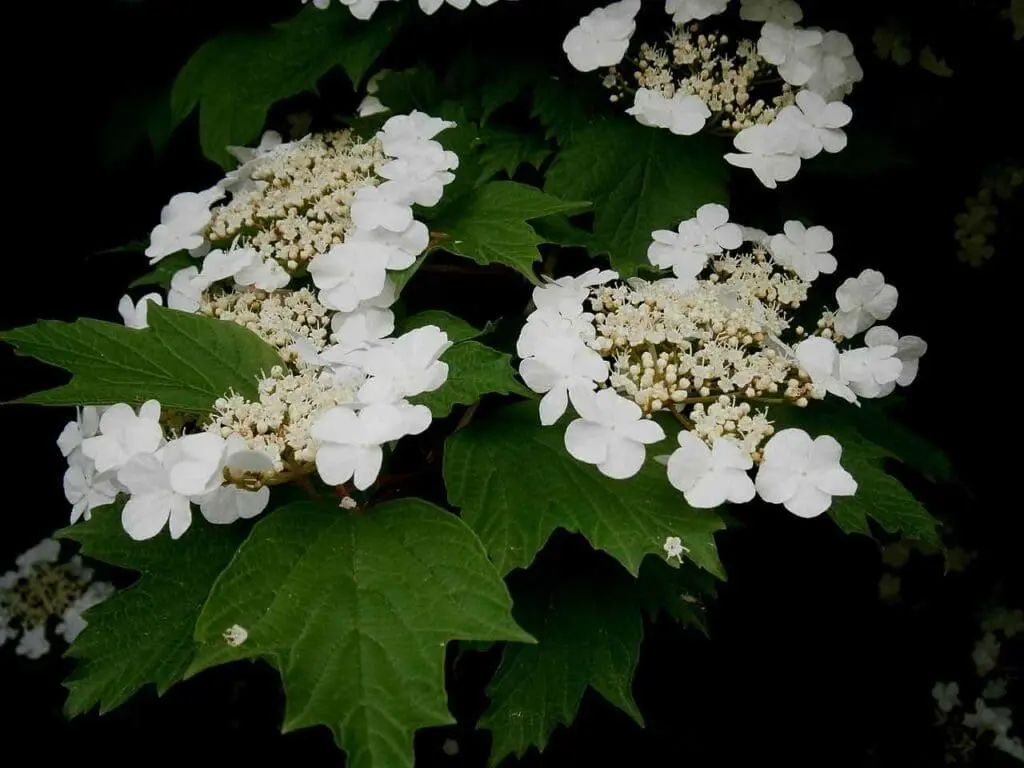
Fruits
The fruits are a bright, shiny red and about the size of a pea.
They are known as drupes and hang on the shrub until the beginning of winter.
Both fruits and flowers are an important source of food for insects and birds.
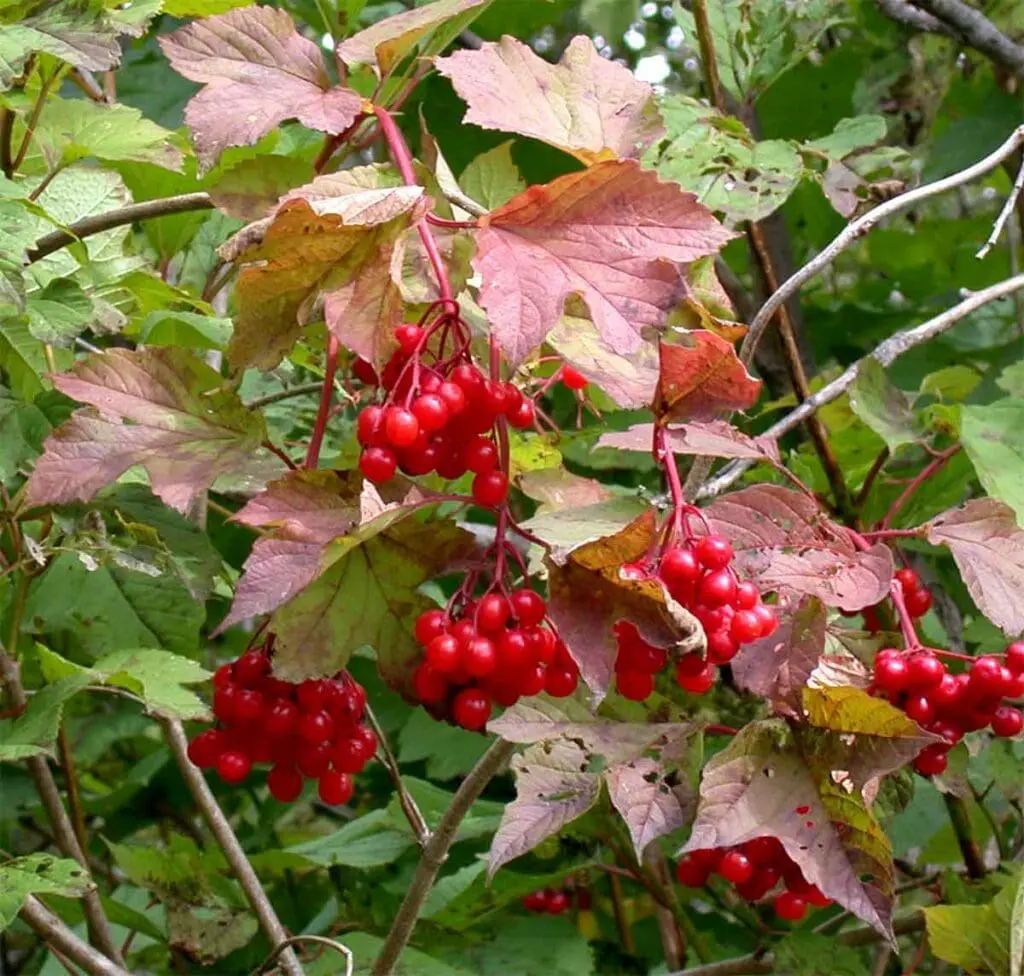
Bark
The bark of guelder rose is smooth and green-brown. The bark is impermeable to water, which is a protection against rot.
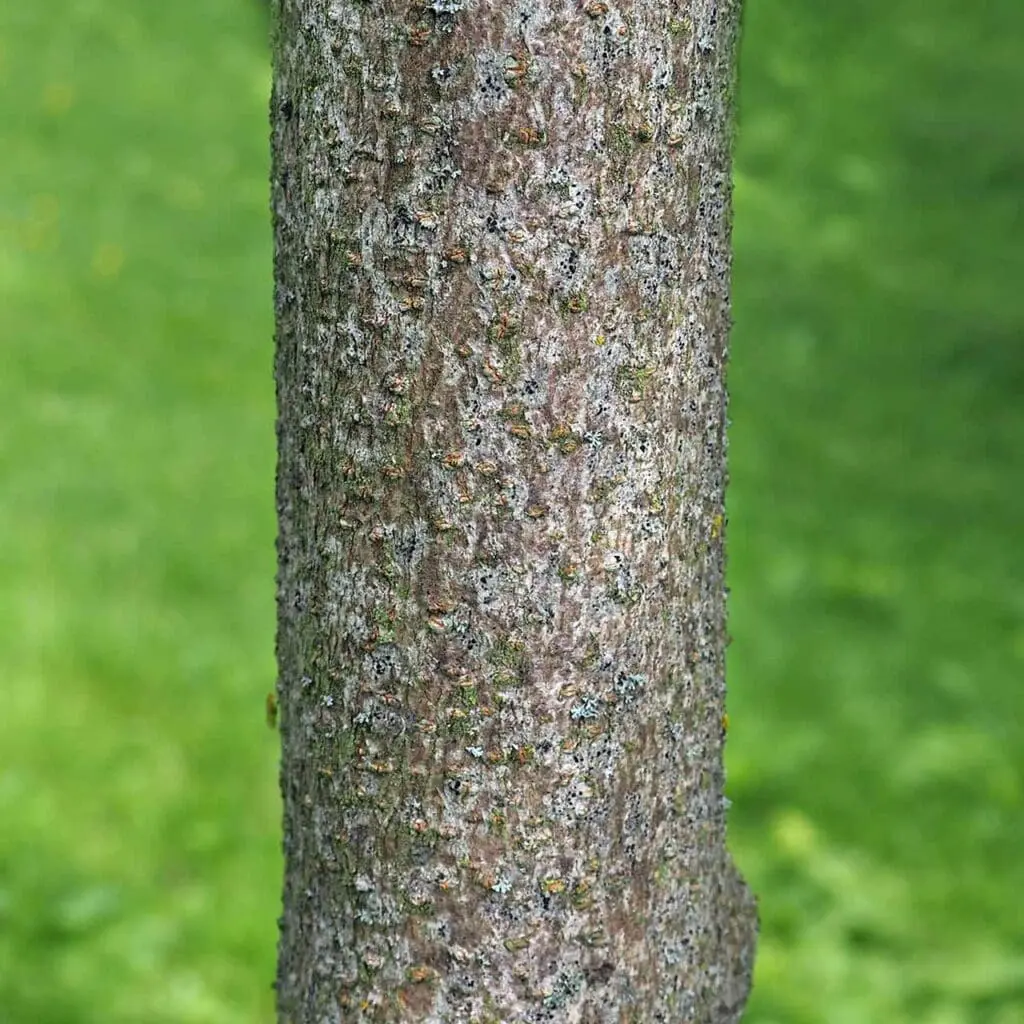
Habitat
Guelder rose is a shrub – growing quickly up to 2-4m tall.
It is often used as an ornamental plant (perhaps because of its bright autumn colours) but normally grows on wet soil – in hedges, wet meadows, river banks and lakes and wet woodlands.
